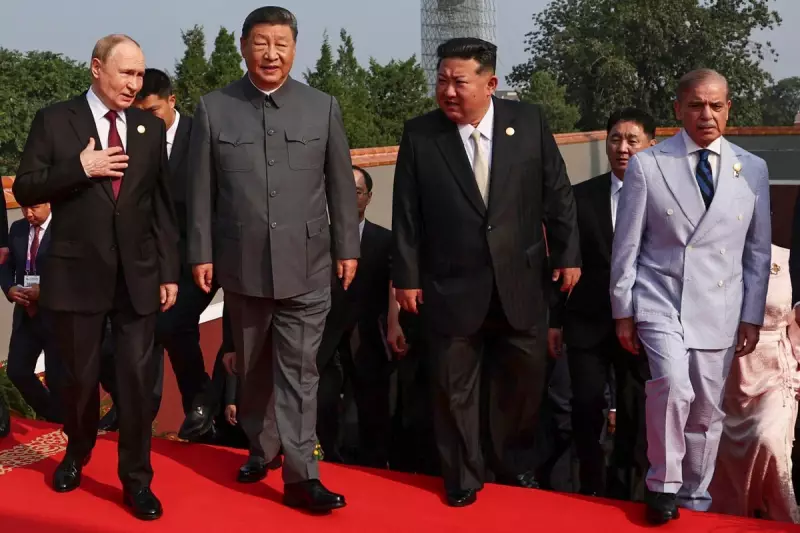
In a powerful display of geopolitical alignment, Chinese President Xi Jinping presided over a major military parade in the northeastern city of Harbin, flanked by two of the world's most contentious leaders: Russia's Vladimir Putin and North Korea's Kim Jong Un.
The event, held to commemorate the 75th anniversary of the founding of the People's Republic of China, was notably absent of any Western dignitaries, signalling a clear pivot in global alliances. The spectacle featured marching soldiers, advanced military hardware, and aerial flyovers, projecting an image of strength and unity between the three nations.
A Snub to the West
The guest list itself was a potent diplomatic message. The presence of Putin, isolated by the West over the war in Ukraine, and Kim Jong Un, whose nuclear ambitions continue to draw international sanctions, underscores China's willingness to challenge the US-led world order. Observers noted the pointed absence of invitations to leaders from the United States or European Union nations.
This gathering in Harbin, a city with historical Russian influence, is seen as a deliberate move to solidify a strategic axis aimed at countering Western influence and creating a new multipolar world structure.
Projecting Power and Unity
The parade was more than just a military show; it was a carefully choreographed piece of political theatre. The sight of the three leaders standing together, reviewing troops and sharing conversations, is intended for both domestic and international audiences.
For China, it reinforces Xi Jinping's position as a central figure in global politics. For Russia and North Korea, the public display of support from a economic superpower like China offers a significant legitimacy boost and a counterweight to Western pressure.
Analysts suggest this event marks a new, more overt chapter in the cooperation between Beijing, Moscow, and Pyongyang, with profound implications for international security and diplomatic relations for years to come.





